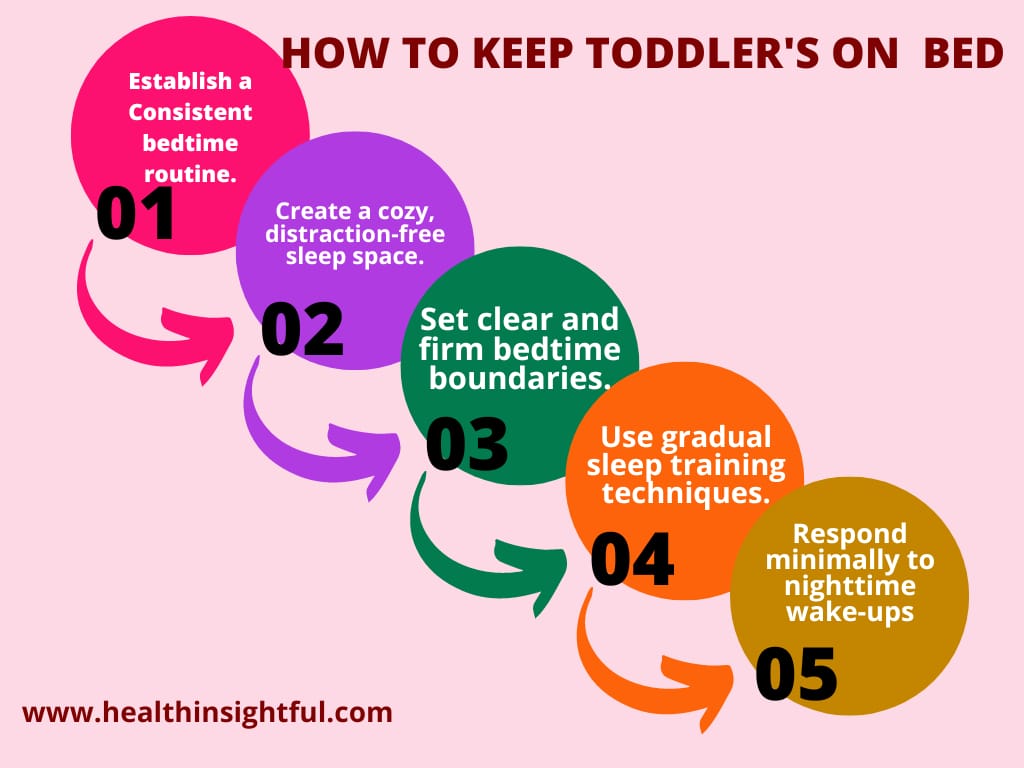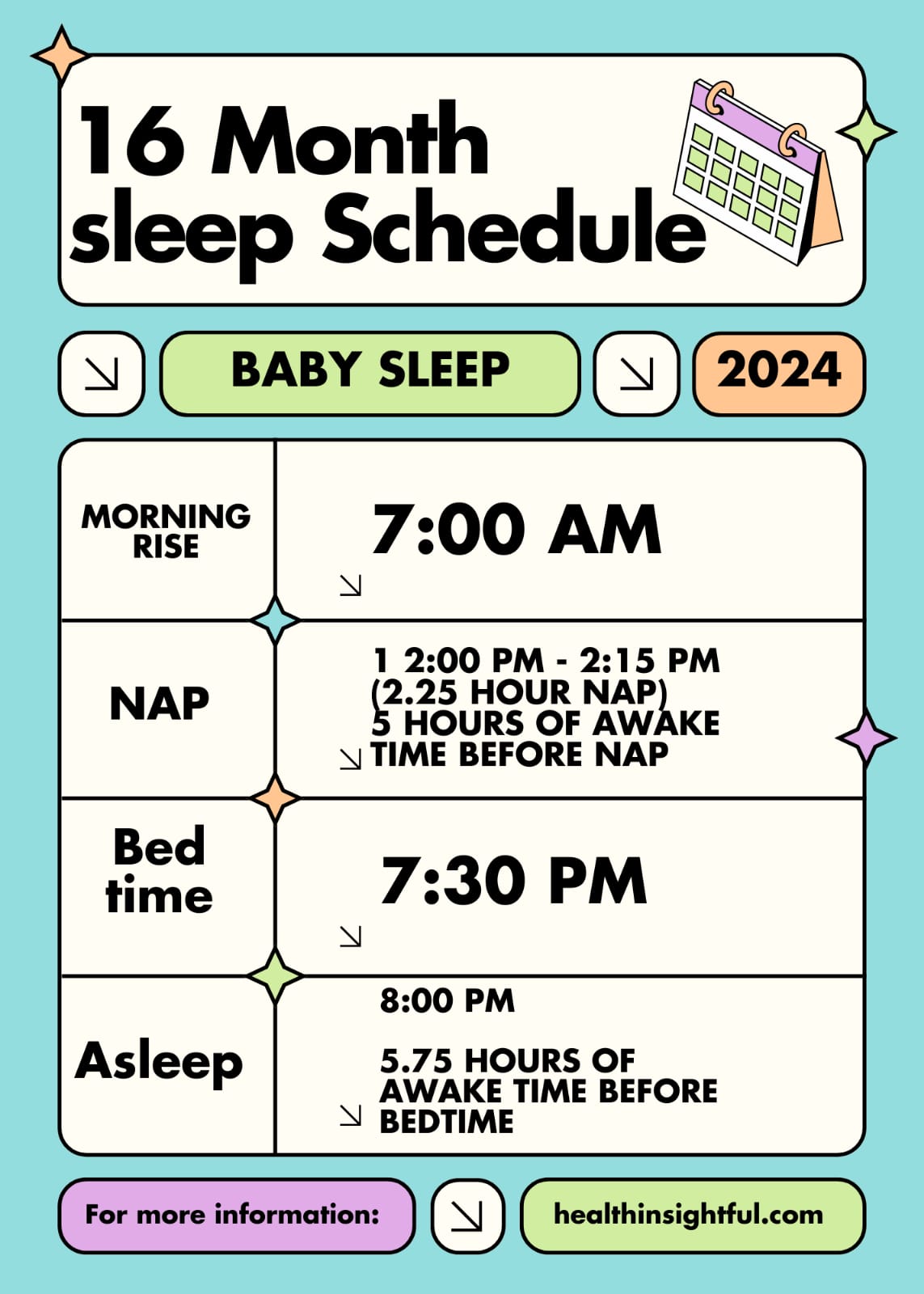The transition from crib to bed is not easy for the child. It is difficult and challenging for a baby to stay in bed. When your toddler grows, their Eagerness to learn and energy may lead them to resist the bedtime routine. This may lead to night battles and many sleepless nights for toddlers and parents, which result in exhaustion and distress.
Are you tired and frustrated trying to keep toddlers in bed? You are not alone; many parents suffer from this. Make sure to establish a consistent bedtime routine, create a soothing environment in the room, provide positive reinforcement, and understand your child’s needs. Avoid stimulating activities and screen time before bed.
You should show patience and consistency to help your toddlers stay in bed. Do you want to improve your child’s behaviour at bedtime? Don’t worry. You can settle it down by following the strategies mentioned in this article. We will discuss the causes of your child’s bed resistance and strategies to keep toddlers in bed. Lets started
Why Toddlers Don’t Stay in Bed and Wake Up Early?
Toddlers are very resistant and stubborn when they don’t want to do anything against their will. Children aged 2 to 5 should sleep for 10 to 12 hours. It is too hard to see your child not getting enough sleep. There are several reasons why toddlers don’t stay in their beds for a longer time.
Separation Anxiety:
One of the main reasons is separation anxiety. Toddlers may awaken and get reassurance and relief from their parents. Establishing a regular sleep routine helps them to relieve their distress. Another factor is an irregular sleep routine. If a child doesn’t follow a sleep routine, it might interrupt their sleep cycle. This results in early awakening and irritability in the child.
Environmental Factors:
Environmental factors are also vital in child sleep. Too much light and noise in the room make the child uncomfortable sleeping.
Making the bedroom dark and comfortable will help the baby to get a good night’s sleep.
Eating Habits:
Eating habits also affect sleep. Having sugary foods or drinking water close to bedtime also affects sleep. Teething and other developmental progressions at this age also disturb the child’s sleep. Parents may create a suitable sleep routine and environment by managing these difficulties. This will help toddlers stay in bed longer, resulting in better sleep for both the child and parents.
10 proven Strategies to Keep Toddlers in Bed:
The major concern and frequently asked question of parents is how to keep toddlers in bed for sleep. Experienced parents know that the real issue is not to keep the toddler in bed but what strategies to follow when their child is not listening to them and not following the bedtime schedule. Here are the methods and complete procedures for proceeding when your child has a bed battle.
Creating a Consistent Schedule:
One of the most important tips to keep toddlers in bed is to have a regular bedtime schedule. Make it sure to keep your child in bed every night at the same time. This will help the child recognize that this is the time to sleep. Create a regular bedtime routine for your baby. If the child goes to bed earlier, he can sleep earlier and continue to sleep throughout the night without waking. Adjust your sleep schedule according to your child’s sleep patterns.
Incorporating Calming Activities:
Adding activities in babies’ lives before bedtime adds comfort and relaxation. Assign them their favourite activities to do before bedtime. Make this time much more pleasurable for your child so they don’t resist going to bed. This includes playing with a favourite toy, collecting stickers, or receiving a token. Reading storybooks and singing poems or songs helps the baby relax and prepare for sleep. A warm bath before bedtime also helps to improve sleep. Restrict physical activities or screen time that makes it difficult for the baby to settle down.
Plan Ahead for Sleep Training:
It will help your child to have a comfortable and smother sleep. Sleep Train your toddler when they are in a crib. This will help them not to move out of bed at sleep time. Crib limits the child from getting away from its sleeping place. Sleep training also includes teaching your child to sleep independently without external help. Sleep regressions also play a vital role in affecting a child’s routine. This can also be reduced by sleep training your child. Choose sleep training methods such as the Ferber or chair according to your child’s sleep needs.
Optimize their sleeping environment
Check the sleeping environment of your baby’s bedroom. Any simple thing can be irritating for your child. Keep the bedroom dark, cool, and calm. Use blackout curtains that prevent outside light. Ensure a normal room temperature—not too cold or hot. Don’t use music, shocking lights, or noisy equipment inside the baby bed. Remove toys or devices that distract your child. Dress the baby in comfortable sleepwear. These things help your child settle down and stay in bed.
Addressing Nighttime Fears:
Nighttime Fears are much more common in babies at this age. Use nightlight to reduce their fear of the dark in the room. Put Objects that give him comfort, like stuffed toys, near him. Reassure your toddlers that they are secure and safe. Ask them if they are facing any other fear in the place, and then try to clear them off. This will give them confidence and encourage them to have a relaxing sleep.

Teaching Self-Soothing Techniques:
Teach your toddlers self-soothing techniques that help them to sleep on their own. Don’t pink your child if they wake up during sleep; give them chances to learn to fall asleep without you. Guide them or praise your child to fall asleep or stay in bed. This will encourage independence in them and teach them how to calm themselves. Gradually reduce your presence in the room, and let them settle their distress.
Consistency is Key:
Establishing a regular routine and teaching your child new skills requires courage and effort. You have to work through a strategy to improve your child’s sleep. Maintaining consistency with nighttime routines will help your toddler know what is expected of them. When problems and challenges occur, sticking to these routines can help your toddler get back on track. Parents should reward their children if they follow their guidelines and rules. All these things will help them stay in their beds independently.
Setting Clear and Firm Boundaries:
Without establishing clear boundaries, children cannot comprehend the purpose of staying in bed. Encouragement will help your child develop good sleep habits. Create a barrier at the room door that prevents your child from moving away from the bedroom. To keep toddlers in bed, follow a consistent bedtime routine. This will give the child an alarm when it is time to go to bed and fall asleep.
Avoid Giving Attention to Non-Ideal Behaviors:
Behaviours that can cause irritation, like crawling into bed at night. If you are showing anger and distress to a toddler, it means you are giving them attention and reinforcing their behaviour. The child enjoys the attention they get for their negative act. For a child, receiving negative attention might still be enjoyable. The most effective action plan in this situation would be to gently and calmly put your toddler back in bed.
Don’t Expect an Easy Transition:
Transition is difficult for your toddler. They need some time to get used to their bedtime schedule. It takes one to two months for a baby to get used to their bed. It requires a lot of supervision and patience to encourage a child to stay in bed. So you should show calmness while monitoring the baby’s routine. Don’t panic if your child is not following a sleep routine. Don’t try to be hard on them. Stay flexible with their sleep and adjust their sleep according to the child’s needs.
How to Deal With an Upset Child?
Stay calm if your child is not willing to go to bed. Acknowledge their feelings, tell them that you understand how they are feeling, and notice you’re unhappy. Sometimes kids can cry it out in protest of what you’re doing. Console your child in the same manner that you do in the daytime. Calm down your child, put your child back to bed, and educate them about their sleep routine. Upset and annoying moods are also a challenge to keep toddlers in bed. If your child continues to resist sleep routine and you are worried about his sleep habits, consult a healthcare professional.
Conclusion:
Keeping your child in bed is challenging, but it is not impossible. This is made possible if you are persistent and patient. Establish a bedtime routine that adjusts with your baby’s sleep routine. Create a cozy and calm sleeping environment. Address night or any other irritation they are suffering in place. Stay calm if a toddler wakes up at midnight and starts moving into the bed. Gently guide them to fall asleep back. Every child is different in nature, so don’t follow a particular scheduled sleep routine if your child is reluctant to follow that routine. With time, your toddler can adapt according to the schedule and routine to stay in bed and fall asleep without any disturbance.










